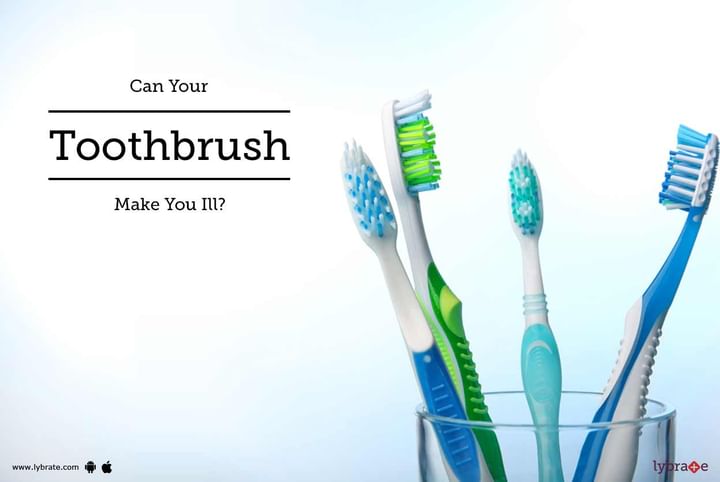Get the App
For Doctors
Login/Sign-up
Last Updated: Jan 10, 2023
BookMark
Report
Can Your Toothbrush Make You Ill?
Dr. Maj. Gen Mahesh Chander Vsm (Retd)Dentist • 52 Years Exp.BDS, MDS - Oral & Maxillofacial Surgery, Advanced course in maxillofacial sugery
Did you know that your tooth brush could be home of over a million bacteria including the flu virus, E coli, staph and yeast fungus? But, can your tooth brush really make you fall ill? Luckily, our immune system ensures that toothbrushes do not make us ill. However, in rare cases, the bacteria on a toothbrush can get past our defenses.
The problem lies in how a toothbrush is stored. The bathroom is humid and moist making it the best place for bacteria to multiply. Storing a toothbrush near the toilet further adds to the problem. Here are a few tips to make your toothbrush healthier.
- Wash your hands before and after brushing. Also rinse your toothbrush well before putting toothpaste on it. Using hot water is better than cold water.
- Change your toothbrush every three months or whenever the bristles are worn out; whichever comes first. In addition, also change your toothbrush after recovering from any illness. If you use an electric toothbrush, change the head every 3-4 months. Children’s brushes need to be changed more often than adult’s toothbrushes.
- Do not share a toothbrush and avoid storing toothbrushes together. If the bristles touch each other, germs could move from one toothbrush to the other.
- Toothbrush caps may not be as good an idea as they seem as it traps moisture inside and does not allow the brush to dry properly. Instead, keep your brush submerged in hydrogen peroxide or any alcohol based mouthwash.
- Do not store your toothbrush horizontally. Your toothbrush should always be stored vertically with the brush side on top.
- When travelling, if you use a toothbrush cap, allow the brush to dry completely before putting the cap on.
- Store your toothbrush away from the toilet and away from the sink such that it cannot get contaminated form water that splashes when you wash your hands or face.
- If possible, store your toothbrush in your medicine cabinet.
- Always put the cover down before flushing the toilet. This will reduce the number of air borne bacteria that can attach themselves to your toothbrush,
- Along with your toothbrush also clean out your toothbrush holder regularly.
- Do not try sterilizing your toothbrush in a microwave. Toothbrushes are not designed to withstand extreme temperatures and hence this could damage your toothbrush.
- Use a mouthwash after brushing to rinse out any bacteria that may be left behind form your teeth or your toothbrush. If you wish to discuss about any specific problem, you can consult a Dentist.



+1.svg)
